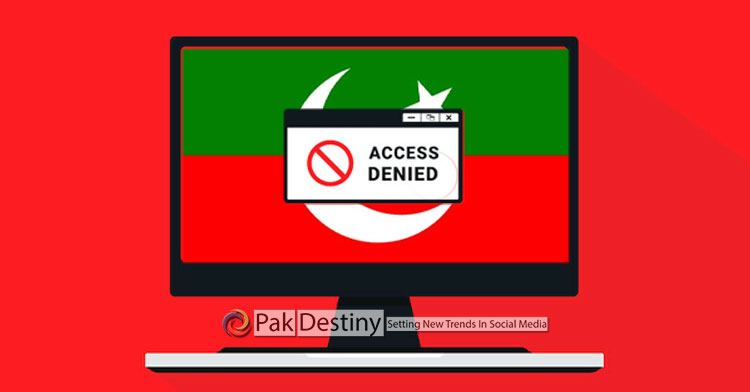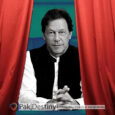
By Irum Saleem
The PTI has become a pain in the neck of the government.
To stop it’s first virtual rally, the authorities policed on cyber space and caused immense inconvenience to Pakistanis.
Dawn writes in its editorial saying the hour has come for officialdom to recognise that its actions are beginning to remind citizens of police states. Frequent internet bans, a long-favoured coercive practice that reeks of a refusal to embrace modernity, has triggered frustration.
The most recent episode occurred on Sunday: amid unannounced restrictions on the PTI’s public rallies and poll campaigns, the party’s virtual ‘power show’ too faced disruptions as users from across the country reported difficulties in accessing social media platforms.
This makes it all the more important to remember that, earlier this year, the Washington-based nonprofit Freedom House yet again listed Pakistan as ‘not free’ under its category of ‘Internet Freedom Score’.
Admittedly, a ‘jalsa’ on the information highway is hardly an anomaly, so the usual position of ‘protecting citizens’ will just not hold water.
In fact, the heavy-handed attempt at patrolling cyberspace is anti-citizen: it obstructs the rights of millions to communicate, research, learn and even make a living. Scores from the country’s neophyte e-commerce industry have pointed out that stalling or filtering the internet prevents millions of people from doing business and providing services reliant on the internet.
Furthermore, this standard state response hurts students, cellular companies, daily wagers such as delivery personnel, online medical, car and taxi services and other small, home-run businesses. Such outdated, politically motivated methods are, at best, indicative of how disconnected the authorities are from a distressed populace and the developed world.
The measures also reflect a regressive approach to internet policymaking, similar to that seen in Saudi Arabia and China. However, people in many places, including Pakistan, have devised ingenious channels to sidestep censorship and break virtual barricades with VPNs.
Therefore, it is advisable to move with the times as suppressing social patterns will not be easy, especially in an economic slump. For the country to progress with a digital revolution, access to the massive, democratic web space should become a fundamental right.
One feels sorry for the poor guys. PAK DESTINY






